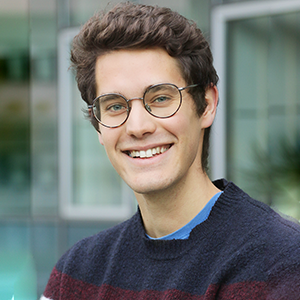Uncovering MGA-driven epigenetic reprogramming in Richter's syndrome

Ramon Massoni-Badosa
PhDWeill Cornell Medicine
Project Term: July 1, 2024 - June 30, 2027
Richter’s syndrome (RS) is a critical complication of chronic lymphocytic leukemia. RS patients are refractory to most existing therapies and show a median survival of ~12 months. I aim to dissect the function of a frequently mutated gene in RS (i.e., MGA) through cutting-edge single-cell analyses of patient samples and mouse models. The objective of these studies is to understand transformation biology, unravel novel therapeutic vulnerabilities, and provide the basis for personalized therapy.
My research is focused on understanding the mechanisms underlying a disease named Richter’s syndrome (RS), which represents a fatal complication of patients affected by chronic lymphocytic leukemia (CLL). CLL is a very common disorder of blood B cells (i.e., the cells within the immune systems that are responsible for antibody production), primarily affecting the elderly, with an onset at ~70 years of age. RS is a rarer disease that affects ~10% CLL patients and occurs as an aggressive transformation of CLL into lymphoma, a cancer affecting lymph nodes and related tissues. Patients with RS generally survive less than one year and are heavily resistant to most available therapies. New studies have identified genetic mutations (i.e., changes in the DNA encoding genes) typical of CLL and RS patients, but how these mutations generate changes in B cells, and how these changes lead to CLL and later transformation into RS is still undefined. My studies aim to analyze the effect of one very prevalent RS mutation (i.e., MGA) in modulating the immune response in mice (Aim 1) and in changing the functional characteristics of tumoral B cells from patients (Aim 2). I will perform these studies through cutting-edge technology which allows to understand the behavior of individual cells through complex bioinformatic analysis. I will utilize new mouse models generated by my mentor, uniquely recapitulating the characteristics of human disease, and exclusively available in our lab. In collaboration with clinicians, I will also study samples obtained from patients with RS. Overall, I aim to understand a link between presence of MGA mutation and changes in B cell function that can provide opportunities for new therapies for this highly aggressive cancer. These studies will provide the basis for future work aimed at testing novel therapies in mouse models preclinically with the goal of translating these laboratory-based findings in the clinical arena to improve the lives of patients with CLL and RS.